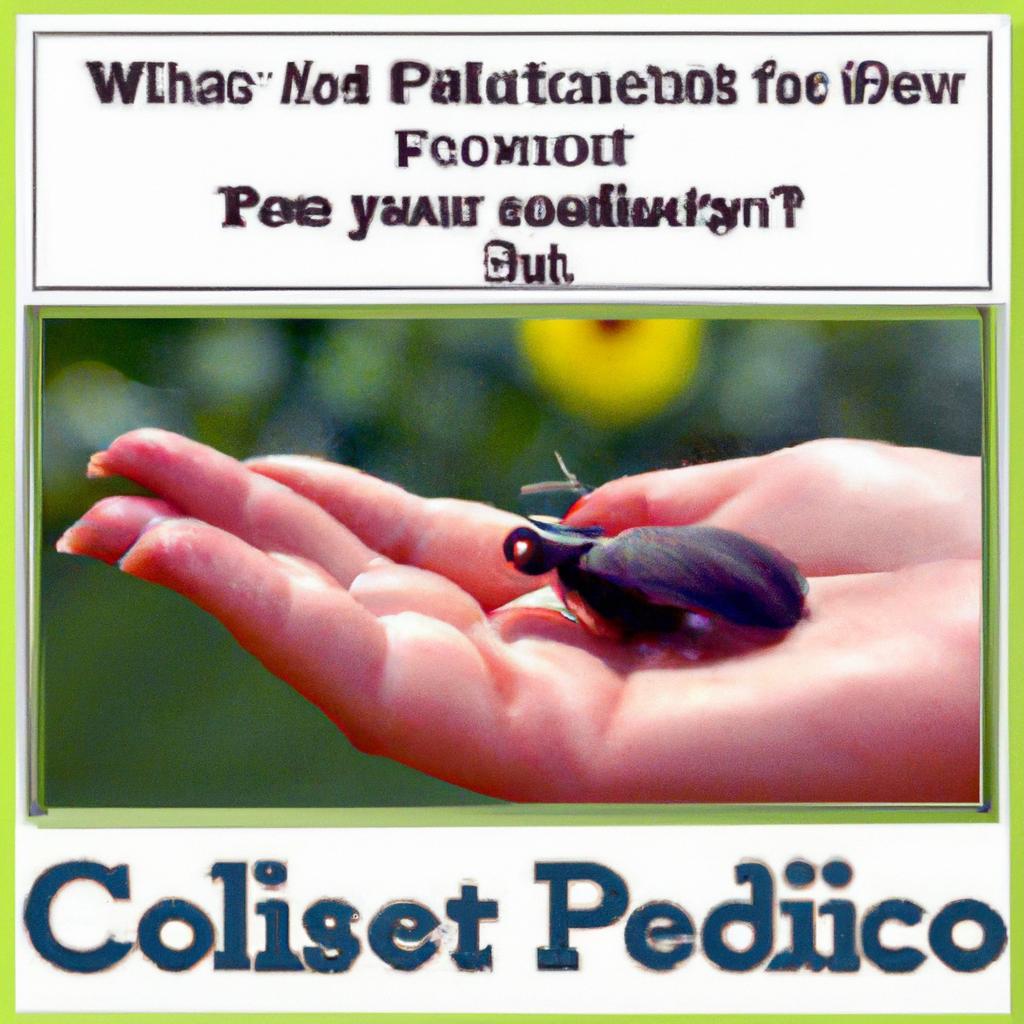
The Ultimate Guide to Organic Pest Control in Your Garden
If you’ve ever spent hours lovingly tending to your garden only to have it decimated by pesky pests, you’re not alone. But fear not, fellow green thumbs, for there is a solution that aligns with your eco-friendly values: organic pest control. In this ultimate guide, we’ll explore natural methods and remedies to keep unwanted critters at bay, allowing your garden to flourish in harmony with nature. So put down that harmful pesticide and join us on a journey to a greener, healthier garden.
Table of Contents
- Understanding the Importance of Organic Pest Control
- Effective Methods for Keeping Pests at Bay
- Natural Solutions for Common Garden Pests
- Creating a Healthy and Balanced Ecosystem in Your Garden
- Q&A
- Closing Remarks
Understanding the Importance of Organic Pest Control
When it comes to maintaining a healthy and thriving garden, is crucial. Choosing to use natural methods to combat pests not only helps protect the environment but also ensures the health and safety of your plants, fruits, and vegetables. By avoiding harmful chemical pesticides, you can create a sustainable ecosystem in your garden that promotes biodiversity and supports beneficial insects.
Organic pest control methods, such as companion planting, using beneficial insects, and implementing physical barriers, can effectively manage pests without harming the environment. These natural solutions not only eliminate pests but also prevent them from becoming resistant to pesticides over time. By utilizing a combination of organic pest control methods, you can create a balanced and healthy garden that flourishes with minimal intervention.
Effective Methods for Keeping Pests at Bay
One effective method for keeping pests at bay in your garden is by using natural predators. Introducing beneficial insects, such as ladybugs and lacewings, can help control pest populations organically. These insects feed on common garden pests like aphids, mites, and caterpillars, keeping your plants healthy without the need for harsh chemicals.
Another way to prevent pests in your garden is by practicing proper crop rotation. By rotating your crops each season, you can disrupt the life cycles of pests and reduce their numbers. This technique also helps improve soil health and nutrient levels, promoting overall plant growth and resilience. Additionally, using barriers like row covers and physical traps can further protect your plants from unwanted visitors.
Natural Solutions for Common Garden Pests
When it comes to keeping your garden free of pests, there are a variety of natural solutions that can help protect your plants without the need for harmful chemicals. One effective method is using beneficial insects like ladybugs and lacewings, which prey on common garden pests such as aphids and caterpillars. Introducing these helpful bugs into your garden can help keep pest populations in check without the use of pesticides.
Another natural solution is companion planting, where you strategically plant certain flowers and herbs that repel pests or attract beneficial insects. For example, planting marigolds can help deter nematodes, while planting parsley can attract beneficial hoverflies. Creating a diverse and balanced ecosystem in your garden can help naturally reduce pest infestations and promote a healthy environment for your plants to thrive.
Creating a Healthy and Balanced Ecosystem in Your Garden
One of the key components of maintaining a healthy and balanced ecosystem in your garden is organic pest control. By utilizing natural methods to keep pests at bay, you can ensure that your plants thrive without the need for harmful chemicals. There are many eco-friendly ways to combat unwanted insects and critters, allowing you to create a harmonious environment for your plants to flourish.
Some effective organic pest control methods to consider for your garden include:
- Companion planting: By interplanting certain crops together, you can naturally repel pests and attract beneficial insects.
- Handpicking: Removing pests by hand is a labor-intensive but effective way to control their population without resorting to pesticides.
- Neem oil spray: A natural insecticide derived from the neem tree, neem oil is safe for use on many plants and can help deter a variety of pests.
Q&A
Q: What are some common pests that can wreak havoc on a garden?
A: Some common pests that can cause trouble in a garden include aphids, slugs, snails, and caterpillars.
Q: How can organic pest control methods help protect your garden?
A: Organic pest control methods help protect your garden by using natural ingredients and techniques that are safe for the environment, beneficial insects, and plants.
Q: What are some organic pest control methods that gardeners can use?
A: Gardeners can use methods such as companion planting, beneficial insects, traps, barriers, and homemade sprays to control pests organically in their garden.
Q: Are there any natural predators that can help keep pest populations in check?
A: Yes, there are natural predators such as ladybugs, lacewings, and praying mantises that can help control pest populations in the garden.
Q: Why is it important to use organic pest control methods in your garden?
A: Using organic pest control methods in your garden is important because it helps maintain a healthy ecosystem, protects beneficial insects, and reduces the risk of harmful chemicals entering the environment.
Q: What are some tips for preventing pest infestations in the first place?
A: Some tips for preventing pest infestations include practicing good garden hygiene, selecting pest-resistant plants, and regularly inspecting your garden for signs of pests.
Closing Remarks
As you embark on your journey to creating a thriving, pesticide-free garden, remember that organic pest control is an ongoing process that requires patience and dedication. By implementing the strategies and techniques outlined in this ultimate guide, you can protect your garden from harmful pests while promoting a healthy environment for your plants to thrive. With a little bit of knowledge and a lot of love for your garden, you can enjoy a bountiful harvest without the use of harmful chemicals. Happy gardening!

